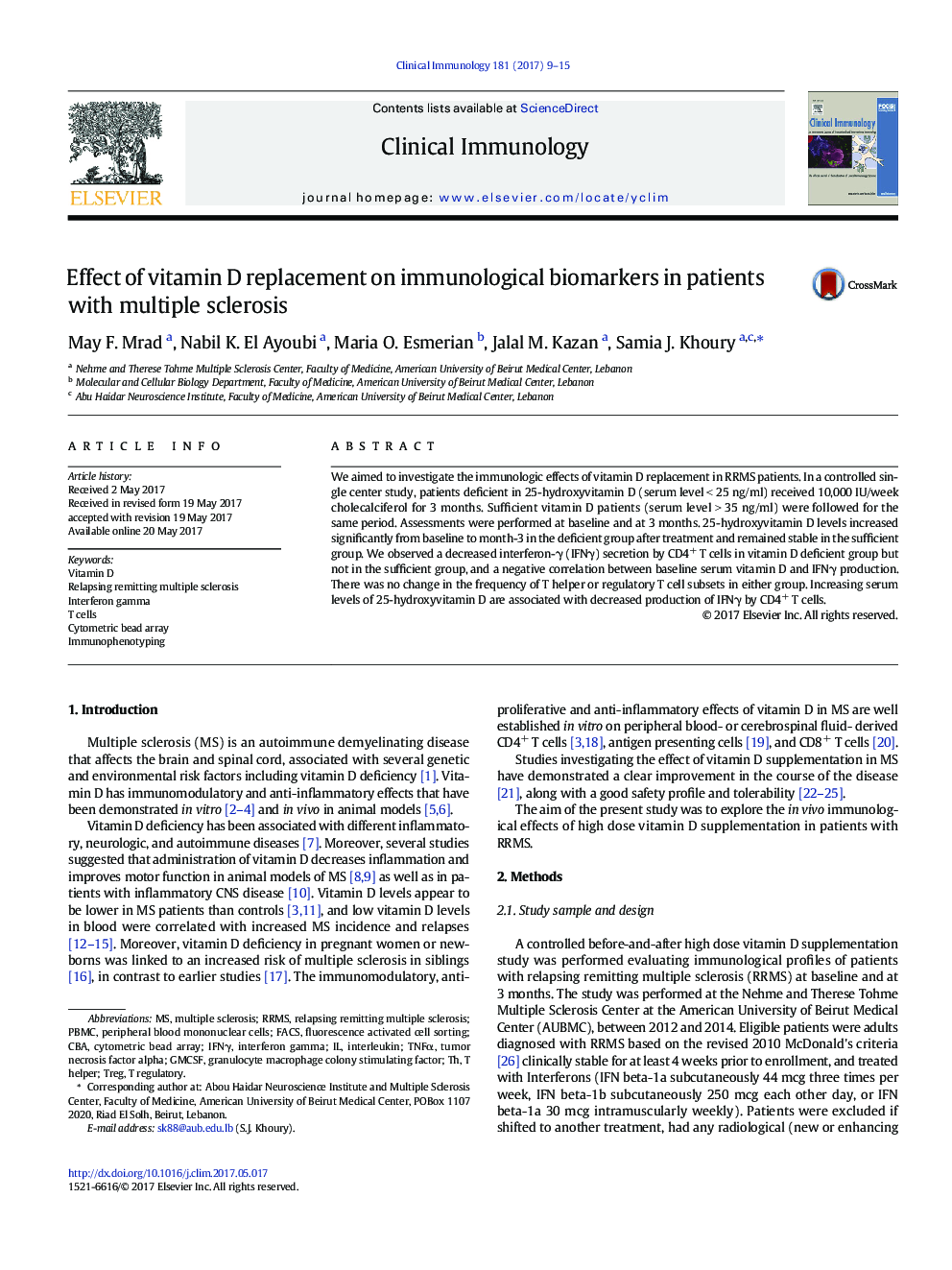| Article ID | Journal | Published Year | Pages | File Type |
|---|---|---|---|---|
| 5654822 | Clinical Immunology | 2017 | 7 Pages |
â¢Serum vitamin D significantly increased after 3 months-vitamin D supplementation.â¢Baseline serum vitamin D inversely correlated with IFNγ production by CD4+ T cells.â¢Increasing serum levels of vitamin D are associated with decreased IFNγ secretion.
We aimed to investigate the immunologic effects of vitamin D replacement in RRMS patients. In a controlled single center study, patients deficient in 25-hydroxyvitamin D (serum level < 25 ng/ml) received 10,000 IU/week cholecalciferol for 3 months. Sufficient vitamin D patients (serum level > 35 ng/ml) were followed for the same period. Assessments were performed at baseline and at 3 months. 25-hydroxyvitamin D levels increased significantly from baseline to month-3 in the deficient group after treatment and remained stable in the sufficient group. We observed a decreased interferon-γ (IFNγ) secretion by CD4+ T cells in vitamin D deficient group but not in the sufficient group, and a negative correlation between baseline serum vitamin D and IFNγ production. There was no change in the frequency of T helper or regulatory T cell subsets in either group. Increasing serum levels of 25-hydroxyvitamin D are associated with decreased production of IFNγ by CD4+ T cells.
